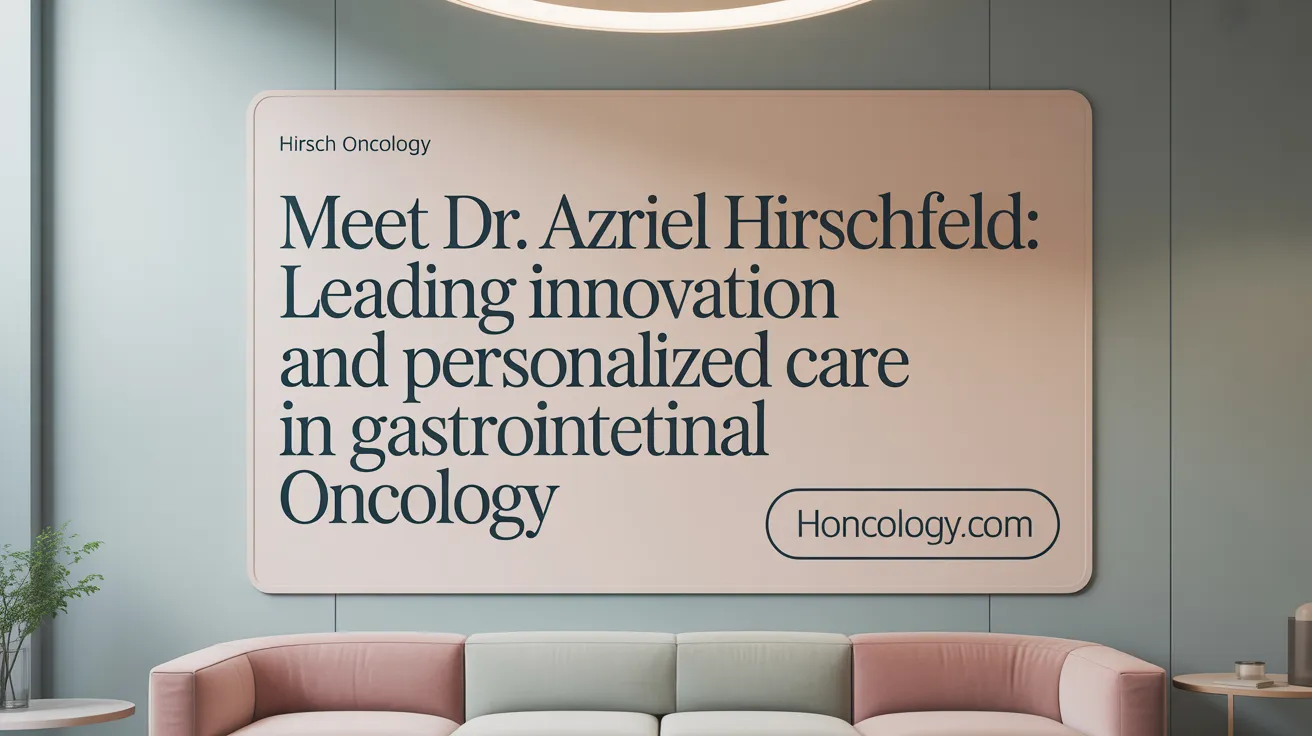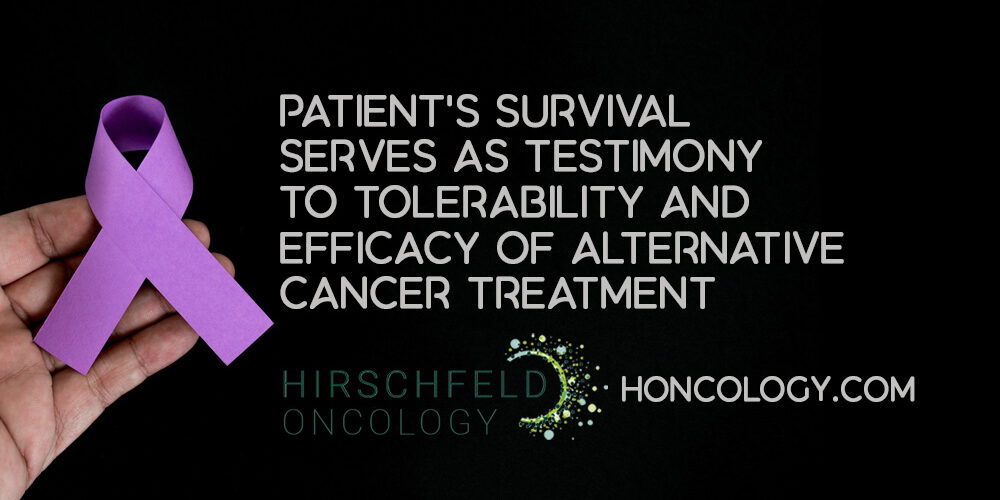The Multidimensional Approach to GI Cancer Treatment
Overview of gastrointestinal cancers
Gastrointestinal (GI) cancers encompass a wide range of malignancies affecting the digestive tract, including cancers of the stomach, colon, rectum, esophagus, liver, pancreas, bile ducts, and gallbladder. These cancers are among the leading causes of cancer-related deaths worldwide, often diagnosed in late stages due to subtle or absent early symptoms. Risk factors for GI cancers range from lifestyle habits, such as diet and smoking, to genetic predispositions and chronic infections like Helicobacter pylori or viral hepatitis.
Importance of multidisciplinary care
The complexity and variability of GI cancers necessitate a multidisciplinary approach for effective management. A coordinated team involving medical oncologists, surgical oncologists, radiation specialists, gastroenterologists, pathologists, radiologists, and nutritionists collaboratively tailors treatment plans to each patient's unique case. This integrative care facilitates the use of precise surgical options—from minimally invasive laparoscopic or robotic procedures to extensive resections—and the optimization of chemotherapy, radiation therapy, immunotherapy, and targeted treatments.
Emerging trends in treatment
Advancements in molecular and genetic profiling have transformed GI cancer treatment by enabling personalized medicine. Biomarker-driven therapies, including targeted drugs against HER2, VEGF, and novel antigens, and immune checkpoint inhibitors such as PD-1/PD-L1 blockers, have improved outcomes in subsets of patients. Immunotherapy is increasingly integrated with chemotherapy and radiation to enhance efficacy. Hyperthermic intraperitoneal chemotherapy (HIPEC) offers a specialized option for peritoneal cancers. Additionally, ongoing clinical trials are exploring innovative strategies like adoptive T-cell therapies, oncolytic viruses, cancer vaccines, and AI-powered diagnostic tools, aiming to overcome resistance and improve survival rates.
This multidimensional approach exemplifies the evolving standards in gastrointestinal cancer treatment, emphasizing personalized, comprehensive care that adapts to individual tumor biology and patient needs.
Personalized Care at Hirschfeld Oncology: A Collaborative Model

How does Hirschfeld Oncology's medical team collaborate to provide care?
Hirschfeld Oncology embraces a close-knit interdisciplinary approach where physicians, nurses, and support staff work hand-in-hand to craft personalized treatment plans. This collaboration ensures care is not only comprehensive but also tailored specifically to each patient's unique condition and needs.
The medical team communicates effectively across specialties, sharing insights and up-to-date scientific findings to optimize treatment efficacy. This dynamic exchange allows the integration of evolving research and novel therapies such as immune checkpoint inhibitors and other innovative therapeutic strategies at Hirschfeld Oncology into patient care.
Beyond medical treatments, Hirschfeld Oncology incorporates psychosocial support frameworks modeled on programs like the Psycho-Oncology and Counseling (PAC), addressing the emotional and psychological well-being of patients. This integration helps build resilience and improves overall quality of life during treatment.
Under the leadership of Dr. Azriel Hirschfeld, who specializes in gastrointestinal malignancies and innovative therapies, the team maintains a focus on combining science with compassionate care. The model emphasizes patient-centered communication, ensuring patients and their families are actively informed and involved in decision-making, fostering trust and advocacy throughout the treatment journey.
Innovative Strategies at Hirschfeld Oncology Driving Progress

What innovative strategies does Hirschfeld Oncology use to redefine cancer care?
Hirschfeld Oncology pioneers a comprehensive approach to gastrointestinal cancer treatment by combining advanced molecular diagnostics with personalized patient care. The center employs genomic profiling to understand each tumor's unique genetic features, enabling the selection of highly targeted therapies including immunotherapy in gastrointestinal cancers and precision medicines.
Integration of immunotherapy is a core element, with therapies like immune checkpoint inhibitors used to enhance the body's natural defenses against cancer. Targeted therapies are thoughtfully combined with traditional treatments such as chemotherapy for stomach cancer and surgical treatments to maximize treatment effectiveness while minimizing side effects.
Research participation and clinical trials at Hirschfeld Oncology are pivotal, where patients gain access to emerging treatments that may not yet be widely available. This involvement fosters continuous improvement in treatment protocols and access to novel drug combinations.
The center’s approach emphasizes collaboration between oncologists, surgeons, and researchers, ensuring that patients benefit from a multidisciplinary strategy for stomach cancer that balances established techniques with innovative therapies. This blending of science and compassionate care is redefining outcomes for patients with gastrointestinal malignancies.
Leadership and Expertise: Dr. Azriel Hirschfeld's Role in GI Cancer Care

Dr. Hirschfeld’s Experience and Certifications
Dr. Azriel Hirschfeld, MD is a board-certified oncologist in Medical Oncology, Hematology, and Internal Medicine with over 15 years of extensive clinical practice. He specializes in gastrointestinal malignancies expert including pancreatic, colon, gastric, and hepatobiliary malignancies. His deep expertise enables him to lead complex treatment approaches with confidence.
Focus on Gastrointestinal Malignancies
At Hirschfeld Oncology, Dr. Hirschfeld primarily treats cancers of the digestive system, tailoring therapies specifically for gastrointestinal malignancies expert. His clinical focus encompasses introducing innovative therapeutic combinations such as low-dose metronomic chemotherapy and integrating advanced immunotherapy in gastrointestinal cancers.
Development of Personalized Treatment Plans
Dr. Hirschfeld emphasizes individualized patient care by creating treatment protocols grounded in personalized cancer care. He blends established standards with novel therapies to optimize outcomes, adjusting plans according to patient health, tumor biology, and treatment response.
Involvement in Research and Clinical Trials
With a strong commitment to advancing oncology, Dr. Hirschfeld actively participates in clinical trials in oncology aimed at better understanding drug resistance and exploring new treatment modalities. His research-driven approach helps bridge laboratory findings to practical patient-centered oncology treatment.
Patient Education and Advocacy
Understanding the importance of patient involvement, Dr. Hirschfeld prioritizes open communication and education, empowering patients to make informed decisions. His approach fosters trust and helps patients navigate complex treatment landscapes with confidence.
Under Dr. Hirschfeld’s leadership, Hirschfeld Oncology stands out as a center combining compassionate, personalized care with cutting-edge novel cancer treatment combinations to improve outcomes for gastrointestinal cancer patients.
Surgical Interventions: The Cornerstone of GI Cancer Treatment
Types of Surgeries for Stomach, Colorectal, and Other GI Cancers
Surgery remains a primary treatment for many gastrointestinal (GI) cancers, including stomach, colorectal, esophageal, pancreatic, and liver cancers. Common surgical procedures vary by cancer type and stage:
- Stomach Cancer: Partial (distal) gastrectomy, subtotal gastrectomy, total gastrectomy, and endoscopic mucosal resection for early tumors.
- Colorectal Cancer: Segmental colectomy or rectal resection tailored to tumor location.
- Other GI Cancers: Pancreaticoduodenectomy (Whipple procedure) for pancreatic cancer, liver resection for hepatocellular carcinoma.
Minimally Invasive Techniques Including Robotic Surgery
Advancements in surgical methods have introduced minimally invasive approaches, such as laparoscopic and robotic-assisted surgeries. These techniques offer:
- Reduced postoperative pain and quicker recovery.
- Shorter hospital stays and fewer complications.
- Enhanced precision through 3D visualization and improved dexterity with robotic tools. Robotic gastrectomy and laparoscopic colectomy are increasingly utilized at specialized centers.
Role of Lymph Node Removal and Staging
Lymphadenectomy is crucial during GI cancer surgeries to:
- Accurately stage the cancer by assessing lymph node involvement.
- Reduce the risk of cancer spread by removing affected nodes. For stomach cancer, surgeons typically remove more than 15 lymph nodes to ensure accurate staging and optimal local control (Stomach cancer surgery options).
Palliative Surgical Procedures
In advanced or unresectable GI cancers, palliative surgeries help relieve symptoms:
- Endoluminal stent placement to unblock tumor-induced obstructions.
- Gastrojejunostomy to bypass gastric outlet obstruction, facilitating food passage.
- Laser therapy to open blocked digestive pathways. These approaches improve quality of life and nutritional intake without aiming for cure.
Postoperative Management and Nutritional Considerations
Post-surgery, patients often require tailored nutritional support, especially after stomach resections:
- Smaller, frequent meals and vitamin supplementation compensate for altered digestion.
- Feeding tubes may be necessary in selected cases.
- Multidisciplinary care involving dietitians optimizes recovery and long-term health (Comprehensive stomach cancer care).
Surgical intervention remains foundational in GI cancer treatment, integrating curative, palliative, and supportive strategies to improve patient outcomes.
Systemic Therapies: Chemotherapy, Targeted Therapy, and Immunotherapy
Chemotherapy regimens including neoadjuvant and adjuvant use
Chemotherapy is integral in stomach cancer treatment and can be administered before surgery (neoadjuvant chemotherapy ) to shrink tumors or after surgery (adjuvant chemotherapy to eliminate residual cancer cells. Common chemotherapy drugs include capecitabine chemotherapy, cisplatin treatment for stomach cancer, docetaxel chemotherapy, oxaliplatin chemotherapy, fluorouracil (5-FU) chemotherapy, and paclitaxel use in stomach cancer. Hyperthermic intraperitoneal chemotherapy (HIPEC) is an advanced approach where heated chemotherapy is applied directly into the abdominal cavity post-surgery to target cancer cells in the peritoneum. This modality is being studied for improved outcomes.
Targeted therapies and their molecular targets
Targeted therapies focus on specific molecules crucial for cancer growth. Trastuzumab targeted therapy and trastuzumab deruxtecan drug target HER2-positive gastric tumors, improving survival. Ramucirumab in targeted therapy and regorafenib treatment inhibit tumor angiogenesis by targeting VEGF pathways. Zolbetuximab therapy is a novel agent targeting Claudin18.2, a protein expressed in certain gastric cancers. These therapies are selected based on molecular profiling, which also guides eligibility for clinical trials.
Immune checkpoint inhibitors and emerging immunotherapies
Immune checkpoint inhibitors such as nivolumab immunotherapy and pembrolizumab treatment have expanded treatment options by enhancing the immune system's ability to fight cancer. Their efficacy is higher in tumors expressing PD-L1, microsatellite instability-high (MSI-H), or deficient mismatch repair (dMMR) profiles, as described in immunotherapy in gastrointestinal cancers. Emerging immunotherapies include dual checkpoint blockade, adoptive cell therapies like claudin18.2-directed CAR-T cells, and oncolytic virus therapies currently under clinical investigation (Immunotherapy in gastrointestinal cancers).
Combination therapy approaches
Combining immunotherapy with chemotherapy or targeted agents has demonstrated improved outcomes, as seen in clinical trials incorporating nivolumab with standard chemotherapy regimens. Such multimodal approaches can enhance tumor response and survival in advanced gastric cancer. Moreover, perioperative immunotherapy combined with chemotherapy is showing promise in increasing pathological complete response rates.
Current challenges and future directions
Challenges include tumor heterogeneity, immune evasion mechanisms, and identifying reliable biomarkers to predict treatment response. Future research focuses on overcoming resistance through combination strategies, personalizing therapies based on molecular and immune profiling, and integrating novel agents such as bispecific antibodies, cancer vaccines, and antibody-drug conjugates. Clinical trials remain pivotal in exploring these frontiers to improve survival and quality of life for patients with gastrointestinal cancers (New Frontiers in Treating GI Cancers).
Advanced Diagnostics and Molecular Profiling: Precision in GI Cancer Management
Molecular and Genetic Profiling Techniques
Modern gastrointestinal (GI) cancer management relies heavily on molecular diagnostics for cancer. Techniques such as next-generation sequencing (NGS) analyze tumor DNA and RNA to identify specific genetic alterations and mutations that drive cancer growth. Patient-derived organoids and high-throughput genetic screens further enable testing drug responses tailored to individual tumors.
Biomarker Identification for Therapy Selection
Biomarkers play a crucial role in guiding treatment decisions. Key markers include microsatellite instability-high (MSI-H), PD-L1 expression, HER2 status, and gene mutations such as KRAS or BRAF. These biomarkers help select targeted therapies, immunotherapies, and chemotherapy regimens best suited to each patient's tumor profile.
Role of Imaging and Artificial Intelligence
Advanced imaging methods, enhanced by artificial intelligence (AI), improve detection and characterization of GI tumors. AI-assisted endoscopy and CT scans detect subtle lesions, assess tumor response to therapy, and assist in precise staging. AI-based digital pathology and molecular twin platforms aid in predicting treatment outcomes and survival.
Importance of Early Detection and ctDNA Monitoring
Early detection is vital as many GI cancers are asymptomatic initially. Circulating tumor DNA (ctDNA) blood tests provide a non-invasive option to detect minimal residual disease, monitor treatment response, and identify recurrences earlier than imaging alone.
Facilitating Personalized Treatment and Clinical Trial Eligibility
Precision diagnostics enable clinicians to tailor therapies based on molecular findings, optimize combination treatments, and identify eligibility for novel clinical trials. This personalized approach is revolutionizing care and improving outcomes for GI cancer patients.
Patient Advocacy and Support: Enhancing Quality of Life Through Care and Communication
Patient Education and Involvement in Care Decisions
At Hirschfeld Oncology, patient education is a priority. Patients are supported with clear, thorough information about their diagnosis of stomach cancer and treatment options for stomach cancer. This empowers them to actively participate in shaping their care. Personalized treatment plans are developed collaboratively, ensuring that each patient’s preferences, health status, and needs serve as a foundation for decision-making.
Psychosocial Support and Symptom Management
Acknowledging the emotional and physical challenges of gastrointestinal cancers, Hirschfeld Oncology offers psychosocial support services. These include counseling and symptom management in stomach cancer resources aimed at enhancing comfort and quality of life throughout the treatment journey. Managing side effects and emotional well-being are integral components of comprehensive care.
Access to Clinical Trials and Novel Therapies
Patients at Hirschfeld Oncology benefit from direct access to cutting-edge clinical trials for stomach cancer treatments. This gives them opportunities to receive innovative stomach cancer therapies that might not be widely available elsewhere. Participation in research initiatives reflects the center’s commitment to advancing treatment modalities while providing hope through new therapeutic options.
Holistic Approach to Treatment at Hirschfeld Oncology
The center embraces a multidisciplinary and holistic GI cancer care model. This approach integrates medical oncology, nutrition, psychological support, and tailored communication strategies to address each patient's unique needs. The focus is on not just treating the cancer but also supporting the whole person.
Advocacy Efforts for Patient Rights and Treatment Accessibility
Hirschfeld Oncology advocates vigorously for cancer patients beyond clinical care. This includes efforts to ensure equitable access to novel therapies and removal of systemic barriers. The team works to influence healthcare policies, enhance patient rights, and raise awareness about the challenges faced by those with gastrointestinal cancers.
Through informed care, compassionate support, and proactive advocacy, Hirschfeld Oncology maximizes patient empowerment and quality of life during every stage of cancer treatment.
Looking Ahead: The Future of Gastrointestinal Cancer Treatment
Ongoing research and emerging therapies
Exciting advances in gastrointestinal (GI) cancer treatment are underway, with immunotherapy, targeted drugs, and novel cell therapies like CAR-T cells showing promise. Research continues on oncolytic viruses, cancer vaccines, and new immune checkpoints to overcome resistance and improve outcomes.
Importance of precision medicine and multidisciplinary care
Precision oncology tailors therapies based on tumor genetic and molecular profiles, ensuring treatment fits the individual patient. Multidisciplinary teams collaborate closely to deliver integrated care, combining surgery, chemotherapy, radiation, immunotherapy, and supportive services.
Commitment to improving survival and quality of life
The ultimate goals remain extending patient survival and enhancing quality of life. Advances in early diagnosis, personalized treatments, and supportive care approaches work together to offer hope and better outcomes for GI cancer patients worldwide.





.png)


.png)
.png)




